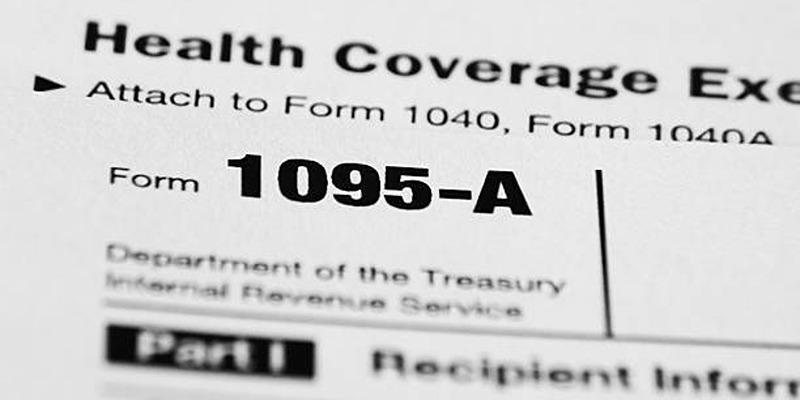In the realm of finance, jargon can frequently act as a hindrance to comprehension for the average individual. While terms such as "cash price" may appear simple initially, their connotations and subtleties can harbor complexities beyond surface understanding. To proficiently navigate the intricacies of financial language, it is imperative to delve further into the interpretation and importance of terms like the cash price, ensuring a comprehensive grasp of their implications in various financial contexts.
Unveiling the Cash Price:
At its core, the cash price, also known as the "spot price," signifies the exact amount of currency needed to acquire a product or service when settling the transaction immediately with cash, a check, or any other form of upfront payment. This immediate payment method contrasts with financing or credit options, where payments are staggered over an extended period. By opting for the cash price, buyers pay the full amount at the time of purchase, avoiding any interest or fees typically associated with borrowing money, thus potentially resulting in a lower total expenditure compared to financing arrangements.
Factors Influencing the Cash Price:
Several factors influence the determination of the cash price for a product or service:
- Cost of Goods or Services: The primary determinant of the cash price is the expenses borne by the seller in manufacturing or procuring the goods or services. This encompasses costs like materials, labor, overheads, and other related expenditures.
- Market Conditions: Supply and demand intricacies are pivotal in defining the cash price. In competitive markets, sellers may tweak prices based on variables such as consumer demand, competitor pricing, and broader market trends.
- Discounts and Incentives: Sellers frequently provide discounts or perks to prompt customers to opt for cash payments. The magnitude of these discounts can vary and may be influenced by factors like inventory levels, seasonal sales, or marketing campaigns.
- Transaction Costs: Payment methods other than cash, like credit cards or financing, could entail extra transaction fees or processing charges for the seller. The cash price may consider these variances by offering a discount for cash transactions.
Benefits of Paying Cash:

Opting to pay the cash price upfront can offer several advantages for consumers:
- Cost Efficiency: Paying in cash can lead to lower overall expenses for buyers by sidestepping interest charges and financing fees.
- Streamlined Transactions: Cash payments are direct and instant, eliminating the complexities of credit checks, loan applications, and approval procedures.
- Enhanced Bargaining Position: Cash purchasers often have more sway in negotiating prices or obtaining discounts, as sellers value the promptness and certainty of cash transactions.
- Debt Reduction: Opting for cash diminishes dependence on credit and lowers the risk of debt accumulation, promoting increased financial stability and peace of mind.
Considerations for Consumers:
While paying cash upfront offers numerous benefits, it's essential for consumers to weigh their options carefully and consider their individual financial circumstances:
- Opportunity Cost: Opting to pay with cash instead of using credit cards or other forms of payment can deplete savings or limit liquidity. This can pose challenges in meeting various financial goals or managing unexpected financial emergencies effectively.
- Forgone Benefits: Certain financing options come with enticing advantages, such as cashback rewards that put money back in your pocket, extended warranties offering peace of mind, and consumer protections safeguarding your purchases. These perks can sometimes outweigh the benefits of paying the full cash price upfront.
- Financial Flexibility: Opting for financing offers consumers the flexibility to spread payments over time, which can be particularly advantageous for large purchases or unexpected expenses. This approach provides individuals with the ability to manage their cash flow more effectively while ensuring that the terms of the financing arrangement are both favorable and easily manageable.
Effects and practical uses of cash prices in different scenarios:

Real Estate Transactions:
In the realm of real estate, the cash price plays a significant role. While many homebuyers choose mortgage financing for their purchases, cash transactions are still common in certain situations. Cash buyers often have an advantage in the housing market because their ability to provide immediate payment can speed up the transaction process and appeal to sellers looking for a quick sale.
Cash transactions in real estate may involve additional considerations like property appraisal, title searches, and closing costs. Although paying cash removes mortgage-related expenses such as loan origination fees and interest payments, buyers should still factor in these extra costs to fully grasp the total financial commitment of the transaction.
Retail and Consumer Goods:
In retail environments, the cash price plays a crucial role in pricing strategies and consumer behavior. Retailers often use discounts or incentives for cash transactions to encourage immediate purchases and simplify payment processing. These discounts can vary from small percentage reductions on the total price to more significant markdowns for bulk or high-value transactions.
Consumers might choose financing options or credit card payments to access benefits like reward points, cashback bonuses, or deferred payment plans. While these perks can enhance consumer value, it's important to evaluate the long-term cost implications and potential interest charges linked to financing arrangements, especially for discretionary purchases or non-essential items.
Small Business Operations:
Managing cash flow and optimizing pricing strategies are crucial for small businesses aiming for sustainable growth and profitability. Setting competitive cash prices while juggling overhead costs, profit margins, and customer demand demands careful analysis and strategic decision-making. Offering cash discounts can encourage prompt payment from customers and reduce accounts receivable balances.
Cash transactions provide small businesses with flexibility and independence in financial management, avoiding the administrative hassle and risks linked to extending credit or financing options. However, ensuring enough liquidity to support daily operations and investments is essential. This underscores the need for prudent cash flow management and contingency planning.
Regulatory and Legal Considerations:
In certain sectors, regulatory requirements and legal constraints can affect how cash prices are determined and disclosed. For instance, healthcare providers must follow transparency laws when revealing prices for medical services. Similarly, financial institutions must adhere to regulations on disclosing interest rates, fees, and terms for lending products.
For businesses in regulated fields, ensuring compliance with laws and regulations is crucial. Non-compliance can lead to financial penalties, harm to reputation, and legal issues. By keeping up with regulatory changes and establishing strong compliance procedures, organizations can reduce compliance risks and maintain the trust of their stakeholders.
Conclusion:
Understanding financial terms such as cash price empowers consumers to make informed decisions about purchases and financial strategies. By acknowledging the factors affecting pricing and evaluating the pros and cons of different payment methods, individuals can confidently navigate transactions. Whether choosing immediate cash payments or exploring financing options, the key is aligning decisions with personal financial goals and priorities to promote financial well-being and resilience in a changing economic landscape.

Western Union: Everything You Need to Know for Smooth Transactions

Best Dental Insurance for Braces of 2023

Guide to Penalty-Free Early Withdrawals from Your IRA

How to Calculate Property Taxes

Summer Camp Rules And Regulations

Understanding Unauthorized Cards on Your Credit Report

USDA Home Loans: Everything You Need to Know

The Ultimate Guide to 529 Plan Withdrawals for Private Schooling

Understanding Form 1095-A: A Comprehensive Guide

When to Expect Your Tax Refund

In-Person or Online Loans: Finding the Perfect Fit for Your Needs
